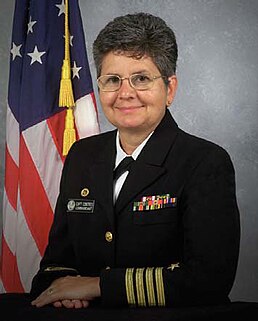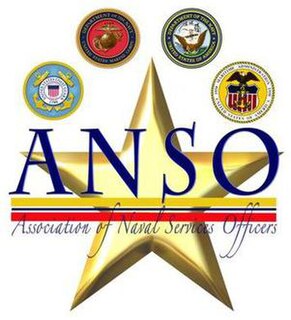A trade association, also known as an industry trade group, business association, sector association or industry body, is an organization founded and funded by businesses that operate in a specific industry. An industry trade association participates in public relations activities such as advertising, education, political donations, lobbying and publishing, but its focus is collaboration between companies. Associations may offer other services, such as producing conferences, networking or charitable events or offering classes or educational materials. Many associations are non-profit organizations governed by bylaws and directed by officers who are also members.

The Society of Hispanic Professional Engineers (SHPE) was founded in Los Angeles, California in 1974 by a group of engineers employed by the city of Los Angeles. Their objective was to form a national organization of professional engineers to serve as role models in the Hispanic community.

The National Society of Black Engineers (NSBE), was founded in 1975 Purdue University located in West Lafayette, Indiana by six undergraduates and a faculty advisor. It is one of the largest student-run organizations in the United States, with core activities centered on improving the recruitment and retention of Black and other minority engineers, in both academe and industry. NSBE is an organization that provides opportunities for personal and professional success, and remains unmatched by any other organization to date.
Out & Equal Workplace Advocates is a United States lesbian, gay, bisexual and transgender (LGBT) workplace equality non-profit organization headquartered in San Francisco, California.

Delta Tau Lambda (ΔΤΛ) is a collegiate and professional Greek-lettered sorority. It was founded on April 2, 1994 at the University of Michigan, by Darilís García and Maria Victoria Ramos. Delta Tau Lambda is a Latina-based organization with a predominately Latina membership. Women are eligible to join regardless of race, ethnicity, creed, sexual orientation, ability, or national origin. The sorority has ten collegiate and six professional/alumni chapters in the United States.
The Federal Bar Association (FBA) is the primary voluntary professional organization for private and government lawyers and judges practicing and sitting in federal courts in the United States. Ten times a year, The Association prints The Federal Lawyer, which includes the latest news of interest to the federal legal community. The magazine features articles by attorneys and judges, book reviews, the latest Supreme Court rulings, judicial profiles, and thorough coverage of FBA activities.
The International Trademark Association (INTA) is a worldwide not-for-profit advocacy association of trademark owners and professionals dedicated to supporting trademarks and intellectual property in order to protect consumers and to promote fair and effective global commerce.
The Association for Women in Science was founded in 1971 at the annual Federation of American Societies for Experimental Biology (FASEB) meeting. The organization aims to combat job discrimination, lower pay, and professional isolation. The main issue areas that the modern Association addresses are fair compensation, work-life integration, attrition, and professional development.
The National Black MBA Association (NBMBAA) is a non‐profit organization founded in 1970 at the University of Chicago, dedicated to the enhancement and development of educational and economic empowerment for African Americans. Like‐minded professionals and students are able to share common experiences, histories, and career goals and aspirations. Dedicated to developing partnerships that result in the creation of intellectual and economic wealth within the Black community, the association is in partnership with more than 400 of the country’s top businesses and business organizations. The organization also has inroads into a range of industries as well as the public sector.

The Council of State Governments (CSG) is a nonpartisan, non-profit organization in the United States that serves all three branches of state government. Founded in 1933 by Colorado state Sen. Henry W. Toll, CSG is a region-based forum that fosters the exchange of insights and ideas to help state officials shape public policy.
The National Hispanic Caucus of State Legislators (NHCSL) is the non-partisan, 501(C)(3) organization founded in 1989 by then Colorado State Senator, Larry Trujillo. NHCSL today represents over 320 elected Hispanic State legislators throughout the United States, Puerto Rico and the Virgin Islands. Since its founding, the NHCSL's primary mission has been development of policies and procedures that enhance quality of life for Hispanic Communities across the country.

Kathlene Contres, is a former United States Navy captain who was the ranking female Hispanic American line officer on active duty. She was the Commandant of the Defense Equal Opportunity Management Institute (DEOMI), the first Latina woman and the thirteenth Commandant to lead the institute since it was established in 1971. Contres retired from the United States Navy on June 4, 2010, after 30 years of service. Contres also completed two terms as the president of the Association of Naval Services Officers (ANSO).
The American Business Women’s Association is a national professional association for women, established by Kansas City businessman, Hilary Bufton, Jr.
The Consortium for Graduate Study in Management was founded in 1966 and is a 501(c)(3) organization dedicated to ensuring the equal representation of African Americans, Hispanic Americans and Native Americans in management careers in the business community of the United States of America. The Consortium is so named for the collaboration among its staff and board of trustees; its 19-member MBA programs; and its approximately 75 corporate partners, which work together toward the mission "to enhance diversity in business education and leadership by helping to reduce the serious underrepresentation of African Americans, Hispanic Americans and Native Americans in both our member schools’ enrollments and the ranks of management."
The National Professional Science Master's Association (NPSMA) is a collaborative of program directors, faculty, administrators, alumni, and students of Professional Science Master's (PSM) Degree Programs that supports PSM degree program initiatives. It engages businesses, industries, nonprofit organizations, government agencies, and professional associations in the development of PSM degree programs and with internship and job placement for PSM degree program students and graduates.

The Association of Naval Services Officers (ANSO) is an organization dedicated to expanding the presence of Hispanic and Latino Americans in the Sea Services of the United States Navy, the United States Marine Corps, the United States Coast Guard, and the United States Merchant Marine. The organization was established in 1981. ANSO connects and networks Hispanics in the Coast Guard, Marine Corps, and Navy together and supports recruitment and retention of officers in the Sea Services. Programs include mentoring, training, and education.

ALPFA is a national nonprofit organization created in 1972. This organization focuses on providing professional development workshops and career resources to its members in order to empower and develop leaders for the nation. They provide members scholarships, career fairs, networking events and mentorship opportunities. ALPFA currently has over 92,000 professional and student members across the country. Currently there are 160 active professional chapters and 45 student chapters.

The American Bus Association (ABA) is a trade association for motorcoach operators and tour companies in the United States and Canada. Its membership consists of about 1,000 companies that operate buses or bus-based tours, about 2,800 organizations representing the travel and tourism industry, and several hundred suppliers of buses and related products and services. Its headquarters is in Washington, D.C.
The Society for Advancement of Chicanos/Hispanics and Native Americans in Science (SACNAS) is a society that aims to further the success of Chicano/Hispanic and Native American students in obtaining advanced degrees, careers, leadership positions, and equality in the STEM field. Founded in 1973, SACNAS has over 20,000 members and 110 chapters on college campuses across the United States and United States held territories. SACNAS began in junior and high schools through graduate and undergraduate programs with the purpose of mentoring students of minority backgrounds. The society does not discriminate against any group, and benefits African American, Asian American, and white students, as well as those who are in the social sciences. In the past decade alone, SACNAS has experienced major growth. The society experienced an increased participation rate of 40% for their annual conferences between 2005 and 2010, while jumping from 32 to 50 chapters of SACNAS on college campuses across the nation between 2007 and 2010. The society's revenue increased as well, moving from 2.3 million to 3.8 million from 2007 to 2010, a total growth of 65%. In 2001, SACNAS received the Public Service Award from the National Science Board, and in 2004 received the Presidential Award for Excellence in Science, Mathematics, and Engineering Mentoring.

Mexican American Women's National Association, known today as MANA, A National Latina Organization, advocates for equality and empowers Latinas through leadership development. MANA was founded in 1974, making it one of the oldest active Mexican-American advocacy organizations, and as of 2000 is considered the largest Latina organization in the United States. The organization was formed to address the intersection of Mexican-American and women's needs for equal rights. The founders created MANA with the intent of having a Latina-oriented organization. MANA publicizes and addresses Latina perspectives and needs through Social movements, Leadership education, and Advocacy within federal, state, and local governments. They have been involved with multiple major social movements throughout their history. These include advocating for the Equal Rights Amendment and Reproductive rights, as well as social movements on education, leadership development, women's healthcare, and racial discrimination in the work. MANA currently operates from its home base in Washington, D.C. and has local chapters across the nation.









